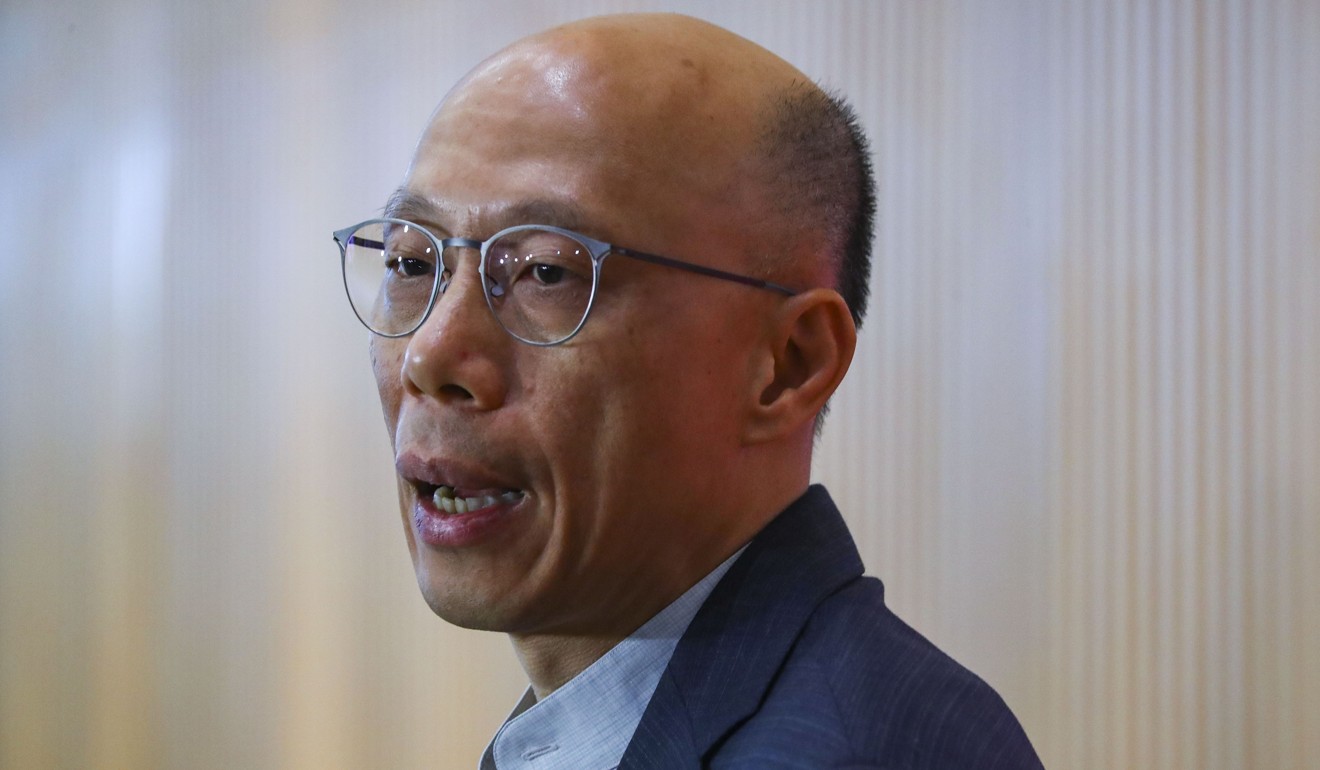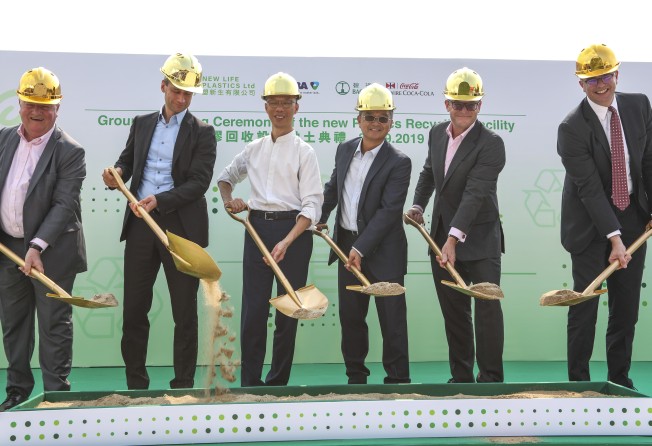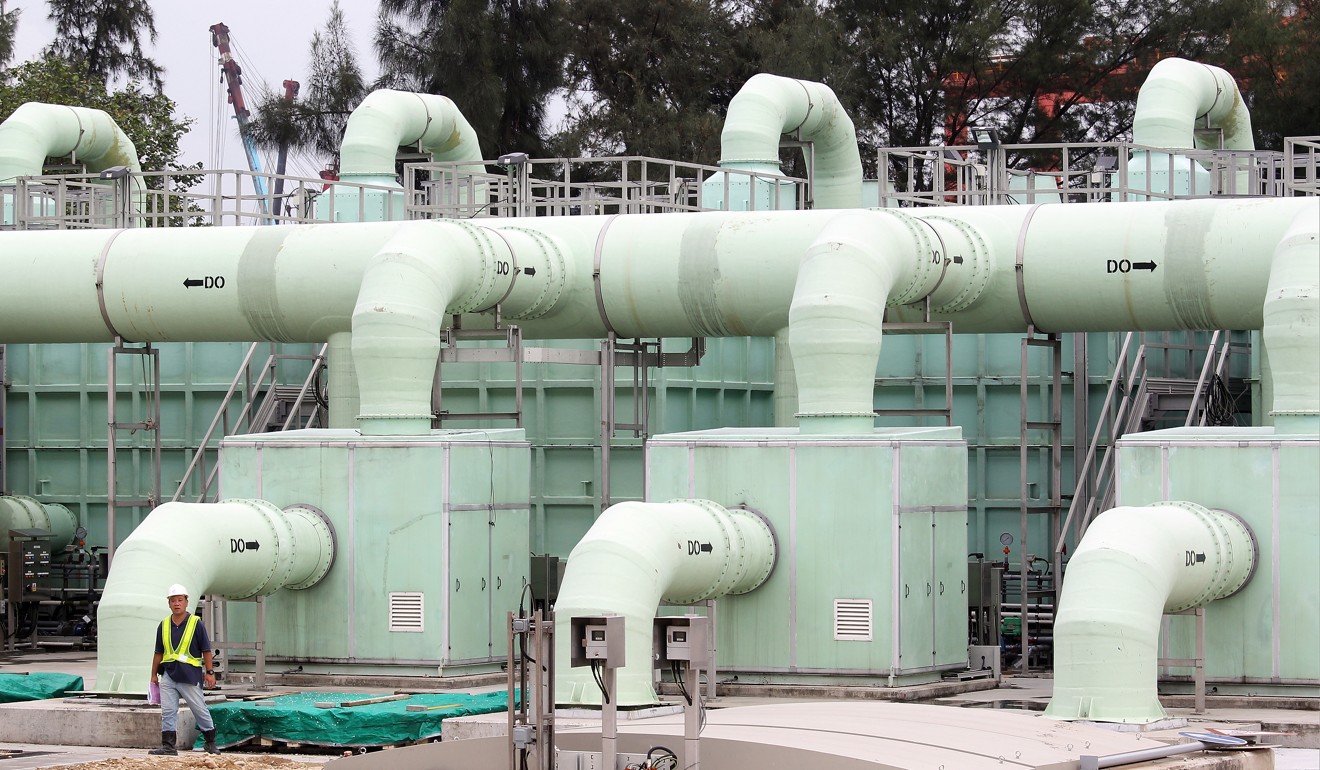
Hong Kong government announces halving rent for tenants of EcoPark to boost economy hit by US-China trade war and months of political unrest
- Secretary for the Environment Wong Kam-sing announces plan at groundbreaking ceremony for new plastic recycling facility at EcoPark
- Rent cut will be effective for six months from October 1

The Hong Kong government has announced it will cut rents for all tenants of EcoPark by half as part of a series of measures to boost the city’s faltering economy, hit by the US-China trade war and months of political unrest.
Secretary for the Environment Wong Kam-sing announced the measure at a groundbreaking ceremony for a new plastic recycling facility at EcoPark in Tuen Mun on Tuesday. The rent cut will take effect from October 1 and will last for six months.
“The government cares about the green industries. The rent cut supports the relief measures announced by the secretary for finance, which include a variety of ways to support businesses in Hong Kong,” Wong said after the ceremony.

Wong also did not directly mention the ongoing anti-government protests as a cause for slowing the economy, choosing to just cite “local and international economic effects”.
In August, Secretary for Finance Paul Chan Mo-po announced a HK$19.1 billion (US$2.4 billion) relief package, including help for small businesses and student subsidies, as the city’s growth forecast was downgraded to 0 to 1 per cent.
Wong announced recycling companies would also benefit from an earlier measure of waiving additional sewage service charges imposed on businesses.
The plan to waive the trade effluent surcharge for up to 30,000 businesses, spanning from manufacturing to food and beverage industries, will cost the government HK$24.8 million.
Ben Ng Wing-hong, chairman of Baguio Green Group, one of the three companies involved in the new recycling factory which broke ground on Wednesday, said the rent cut would save his company up to HK$450,000 over the six months.
“It will benefit us directly,” he said.
The new recycling plant, New Life Plastics, a joint venture between Baguio Waste Management & Recycling, ALBA Group Asia, and Swire Coca-Cola, is a tenant at EcoPark.
The plant, which will process clear PET (polyethylene terephthalate) beverage bottles and HDPE (high-density polyethylene) plastic materials, such as personal care product bottles, into food-grade ready plastics, would be the first of its kind in Hong Kong upon completion in 2020.
It would be able to process and recycle 35,000 metric tonnes of plastic waste a year, and the recycled material could be used to make new bottles and could also be fed back into local industries, forming a “closed-loop economy”.

“The goal is to set up a real demonstration plant not just for Hong Kong, but for the whole region,” Axel Schweitzer, ALBA Group’s chief executive, said.
“Almost 100 per cent of Hong Kong’s waste goes to landfills now. Lots of these bottles end up in landfills so the goal is to recycle on one hand and reduce waste on the other,” he said.
Hong Kong generated 50,000 tonnes of PET bottle waste in 2017, most of which were sent to landfills, and only 8.5 per cent was recovered for recycling. Around 3,660 tonnes were exported, almost exclusively to the mainland, before it banned waste imports in the beginning of 2018.
Separately, the Innovation and Technology Commission has announced it will disburse partial funding in advance to projects under the Technology Voucher Programme, the Enterprise Support Scheme, the Patent Application Grant and the Reindustrialisation and Technology Training Programme.
The Standards and Calibration Laboratory and the Hong Kong Accreditation Service will stop charging for the services until the end of 2020.
“Through the arrangements, we hope to ease funding problems for small and medium enterprises and start-ups in carrying out projects. We hope these measures will also help them control their operating costs, thereby assisting them in coping with the challenges brought about by the current economic environment,” an ITC spokesman said.